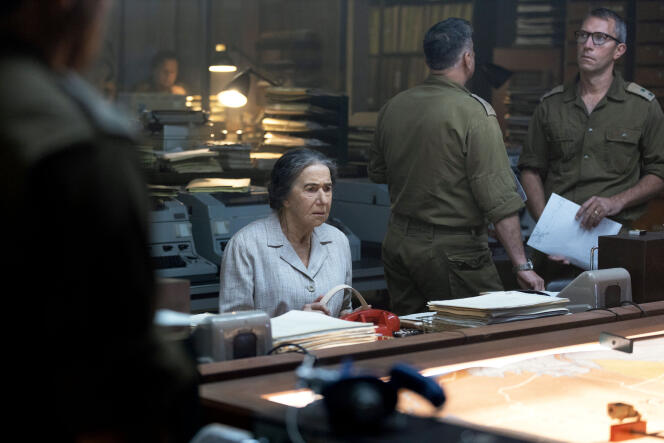At the end of September, Canal+ announced the broadcast and online posting of goldaWednesday October 11, “in memory of the fiftieth anniversary of the Yom Kippur War”. History has taken it upon itself to give a taste of ashes to the commemoration. golda depicts the catastrophe that befell Israeli Prime Minister Golda Meir in October 1973, when the Egyptian and Syrian armies attacked Israel. A half-century-old scar that reopened after the Hamas attack on Israeli territory.
If there is a lesson that can be learned from this feature film directed by an Israeli, produced and performed by the British, Michael Kuhn and Helen Mirren, it lies more in the almost infinite distance that it reveals between the two events than in the similarities in their unfolding (the failure of the intelligence services, the effect of surprise which brings a State to the brink of panic).
The backdrop of goldait is a world co-managed by the United States and the Soviet Union, in which the American president, Richard Nixon, can say: “We are neither pro-Israeli nor pro-Arab”, while the Kremlin supports Egypt at arm’s length. In terms of geopolitics, the only thing that has not changed is Moscow’s arms deliveries to President Assad.
Respectful paralysis
For the rest, golda is struck by the respectful paralysis that undermines so many biographical works. Like Ingrid Bergman before her (in the TV movie A woman named Goldain 1982), Helen Mirren took on the features of the ” old lady “ – Golda Meir introduced herself in these terms to President Sadat during their first, and only, meeting. The British actress inhabits this artificial body (make-up and prosthesis) of immense suffering, made of illness, empathy for the young people she sent to their death, but also violence and a total lack of esteem for his adversaries.
In the United Kingdom, a major figure in London theater, Maureen Lipman, expressed her disagreement with the role being given to a non-Jewish actress, while adding: “I’m sure she’ll be wonderful.” » This did not prevent the film from being presented in July at the Jerusalem Film Festival.
Guy Nattiv made the wise decision to keep the film behind closed doors: the film only leaves the meeting or command rooms via newsreels. Once formulated, this opposition between the smallness of the space in which decisions are made and the immensity of the battlefield on which they are implemented does not produce the hoped-for dramatic effects. Despite the performances of Liev Schreiber (Henry Kissinger) or Camille Cottin (Lou Kaddar, the assistant and friend), golda follows the rhythm of troop movements until final victory, without ever doing more than outlining the issues: the balance of power between soldiers and civilians in Israeli institutions or – above all – the future of the State of Israel in its region.
You have 6.52% of this article left to read. The rest is reserved for subscribers.
